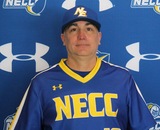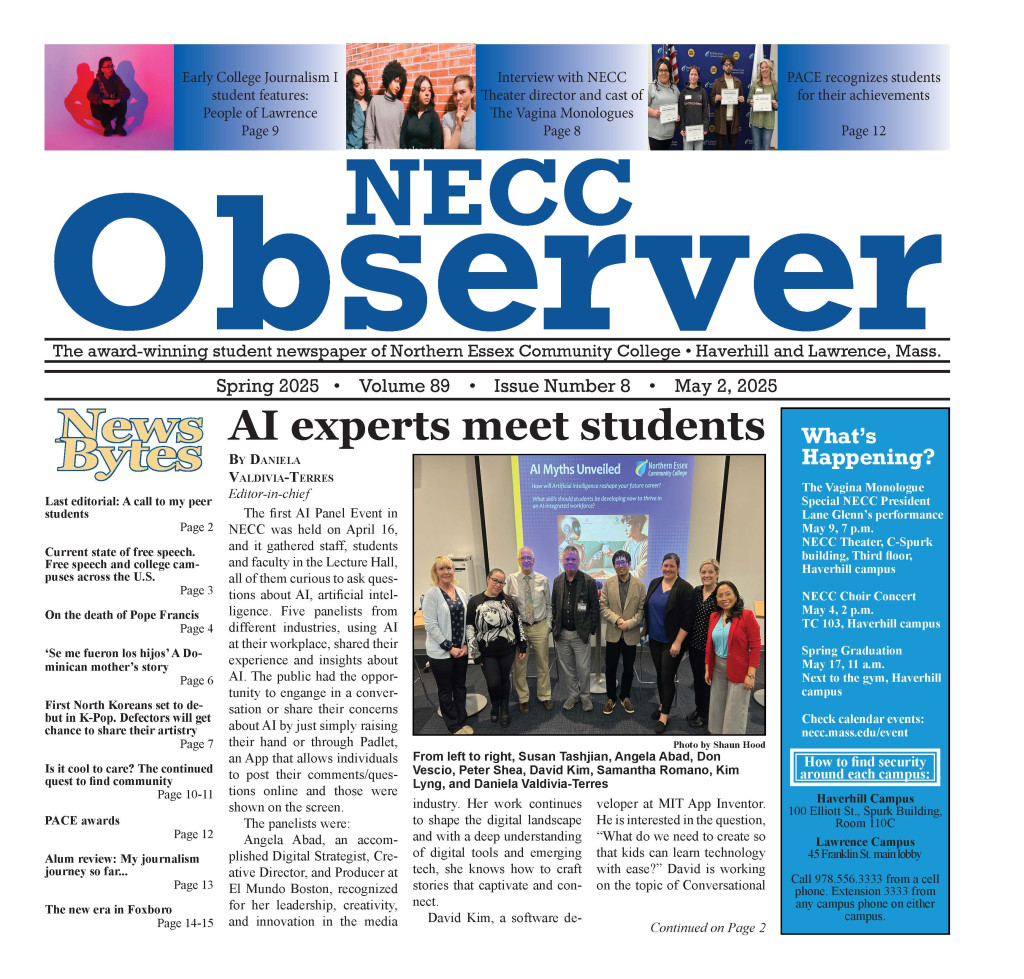Covid-19 has plagued the world. And it may even feel as if you’re the only one experiencing troubles, whether it’s in the classroom, on campus, or in your everyday lives. One thing for certain is we are all struggling through these troubling times.
In an interview with a select few students and teachers at Northern Essex Community College, We hear what they had to say about this change. Fellow student Shaun Hood made this statement about how he is dealing with college and the pandemic.
“The pandemic has definitely made college a lot more difficult. I did not enjoy having two semesters of completely online classes, and I am very happy to be spending much more time on campus this Fall, now that both of my two classes meet in person!”
For other students like Aliyah Quevillon, they face a more social problem.
“I think this virus has made things harder on all of us. I miss being able to see my friends faces.” Quevillon then goes on to say “I miss being able to hug my friends and be able to see them laugh and smile when I tell jokes.”
Quevillon also faces a learning curve, “Learning with the mask itself is a problem, I usually find that it’s really hard to hear what they are saying because the mask makes everyone muffled.”
The school itself has taken precautions to try and make dealing with covid-19 easier. These include a covid vaccine mandate starting in January 2022, vaccine clinic on campus pop ups, FIT training seminars which are run by certified individuals teaching how to properly wear a N95 mask and 70 air scrubbers with the highest level MERV filters and HEPA filtration systems been placed in high traffic areas on campus. As well as wearing a mask on campus, and contact tracing sheets.
When talking to an all online student, Tara Duggan, she mentions that she “can’t wait to actually be able to come onto campus, but I am still waiting to feel safe enough with covid still going around.”
In another interview with Kimberly Small Lyng, an interpersonal communications director she claims that covid has had some effect in her classroom. “In some ways, yes and some ways no. I’m teaching Interpersonal Communication in person with masks, which obviously has its challenges, but interestingly, it’s added another dimension to the course as we contemplate how masks have impacted the non-verbal messages we give to one another,” she said.
Lyng goes on to say that “The students are doing a great job through this. I’m really proud of them.”
Lyng states that she is looking forward to “continuing to work toward normalcy again. It’s been so nice to see and work with people. It’s wonderful that we have technology and it’s helped us through all of this, but nothing beats connecting with people in the real world.”
Through this entire pandemic we have seen many scares, many changes and a diverse community coming together. We are all working towards a common goal, the future, and towards normalcy. We are all in this together and will get through this.





